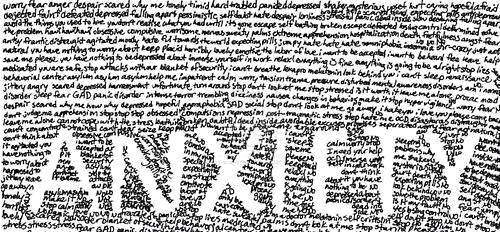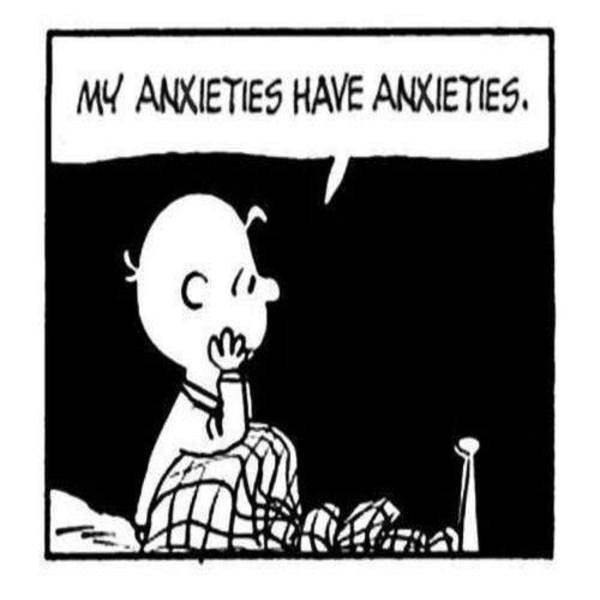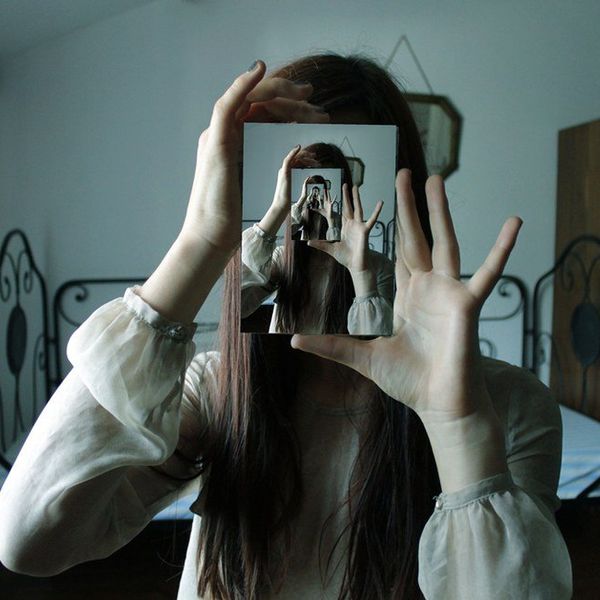My tray is the first tray on the rack in the cafeteria. This really isn't normal; I'm usually the first one in, and usually the first one out. But my tray is different in a way: when the trays get stacked, nice and neat on the metal rack, they all have empty plates and bowls, except for mine. Mine has a substantial amount of meat and vegetables on my plate, and it looks like I didn't even put a dent in my pasta. A few straggler pieces of fruit are left in the plastic bowls.
At this point, people don't comment on my eating habits like they used to. This is mainly because I attribute my lack of appetite to the stick in my arm, a birth control implant that does make my appetite relatively small. But, in the past few days especially, there's been food left on my tray because of another thing: anxiety.
Anxiety is one of the more common mental illnesses; the Anxiety and Depression Association of America approximates that anxiety affects 1.5% of United States adults 18 and older in a given year. This is about 3.3 million American adults. Commonly, anxiety is paired with another mental illness, which worsens symptoms and makes it harder to recover. While having anxiety is not inherently unique, anxiety is unique in how it affects the people that have it.
I have had anxiety since I was in elementary school. Back then, it manifested in the form of insomnia, anger, and a felt need to pick at the skin on my fingers and toes. It still manifests as these things. Anxiety, for me, is not just a mental condition that sometimes makes me scared.
Anxiety, for me at least, is a physical phenomenon. When I have attacks, which is relatively often, my chest gets tight. It's hard to breathe, like I had just finished running a marathon while being as completely out of shape as I am. My stomach churns and I sweat, and the only thing I can really do is drink water and sit up and hope that it goes away, taking deep breaths. Sometimes, I feel like the ground is moving, an earthquake that only I can feel.
Even when I'm not in the grasp of an anxiety attack, I'm either nauseous, or I have that generic feeling of nervousness where butterflies test the boundaries of my stomach. It makes me dizzy, and gives my eyes the feeling of having an intense Instagram vignette filter. Every single noise is amplified, and I get overloaded with input from all of my senses. And God, my biggest wish is that it'll stop.
It's harder during classes. Anxiety makes it hard to concentrate, and every time a professor asks a question, I have to try to gather the courage to answer. My biggest fear is that there's going to be a group project, because I'm terrified of rejection and dismissal by my peers. I want everyone to like me, but I stay away from them; socializing doesn't come easy to me by any means, and it makes my stomach hurt when I have to reach beyond the social circle that I've already created. And when I do, I stutter like George VI. Which just makes me more anxious.
Anxiety is a cruel, cruel thing. It's a mental illness that isn't purely mental; it affects you physically, something that no one really thinks about. It's a physically affective disorder, one that people don't really understand and that has no cure. Next time you see someone being "anti-social," or not finish their food, or stutter, don't judge them. Don't mention it to them. It may be the result of physically affective anxiety.





















